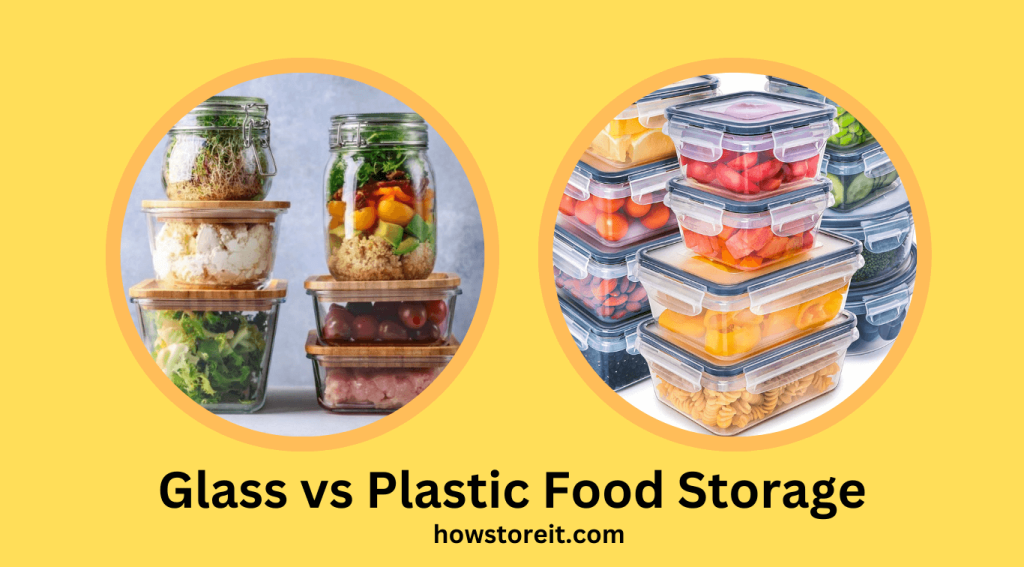
There are two primary choices available for food storage: glass containers and plastic containers. Both have their advantages and disadvantages, and choosing between them can be a difficult decision. In this article, we will compare “glass vs plastic food storage containers and help you decide which is better for you.
Glass Food Storage Containers
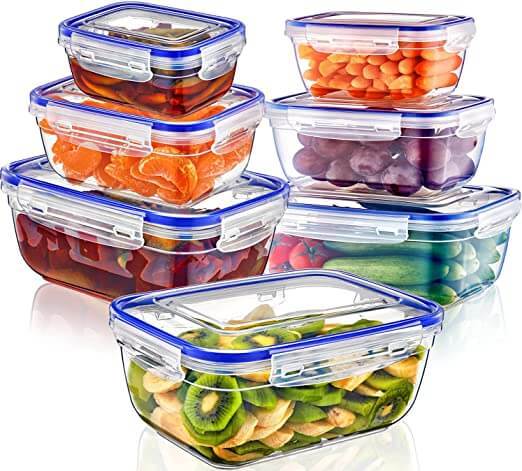
Glass containers have been used for food storage for many years, and for good reason. Here are some of the advantages of using glass food storage containers:
- Safety: Glass is a non-toxic and inert material, which means that it does not release any harmful chemicals into your food. This makes it a safe option for storing food.
- Durability: Glass containers are generally more durable than plastic containers, and they are less likely to scratch or crack. This means that they will last longer and can be reused more often.
- Versatility: Glass containers can be used in the oven, microwave, and freezer, making them a versatile option for storing and reheating food.
- Eco-friendly: Glass is a recyclable material, which means that it is a more eco-friendly option than plastic.
However, glass containers also have some disadvantages:
- Weight: Glass containers are heavier than plastic containers, which can make them less convenient to carry around.
- Fragility: Glass containers are more fragile than plastic containers and are more likely to break if dropped.
- Cost: Glass containers can be more expensive than plastic containers, especially if you opt for high-quality, durable ones.
Plastic Food Storage Containers
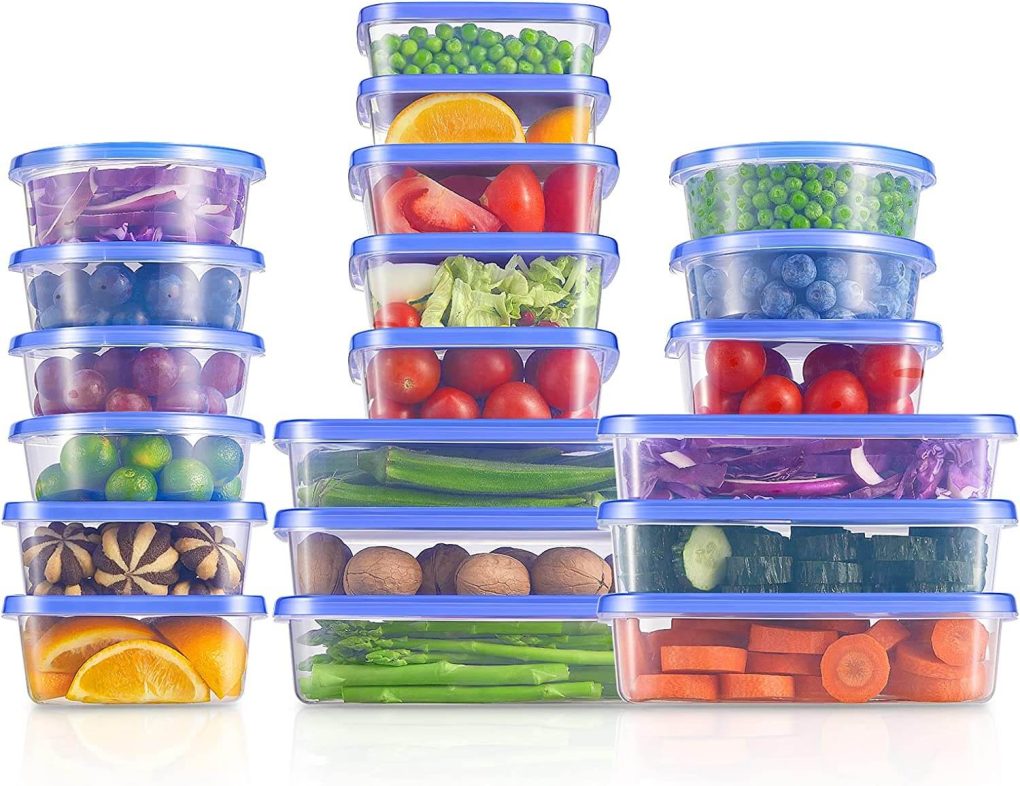
Plastic containers have become increasingly popular in recent years, and there are many different types and brands to choose from. Here are some of the advantages of using plastic food storage containers:
- Lightweight: Plastic containers are lightweight, which makes them easy to carry around.
- Affordable: Plastic containers are generally more affordable than glass containers, making them a more budget-friendly option.
- Availability: Plastic containers are widely available and can be found in most stores that sell food storage containers.
- Variety: Plastic containers come in many different shapes, sizes, and colors, which means that you can easily find one that suits your needs.
However, plastic containers also have some disadvantages:
- Chemicals: Plastic containers can release harmful chemicals into your food, especially when they are heated in the microwave or dishwasher.
- Durability: Plastic containers are generally less durable than glass containers and can scratch or crack easily.
- Environmentally-unfriendly: Plastic is not biodegradable, which means that it can contribute to environmental pollution.
Glass vs Plastic Food Storage: Which is Better for You?
When it comes to choosing between glass and plastic food storage containers, there is no right or wrong answer. Both options have their advantages and disadvantages, and the choice ultimately depends on your personal preferences and needs.
If you are concerned about the safety of your food and the environment, glass containers may be the better option for you. They are a more durable and eco-friendly option, and they do not release harmful chemicals into your food.
On the other hand, if you are looking for a lightweight and affordable option, plastic containers may be the better choice. They are widely available and come in many different shapes, sizes, and colors.
Glass vs Plastic: Advantages and Disadvantages
| Criteria | Glass Containers | Plastic Containers |
|---|---|---|
| Safety | √ | × |
| Durability | √ | × |
| Versatility | √ | × |
| Eco-friendliness | √ | × |
| Weight | × | √ |
| Fragility | × | √ |
| Cost | × | √ |
| Availability | √ | √ |
Glass vs Plastic: Considerations in selection
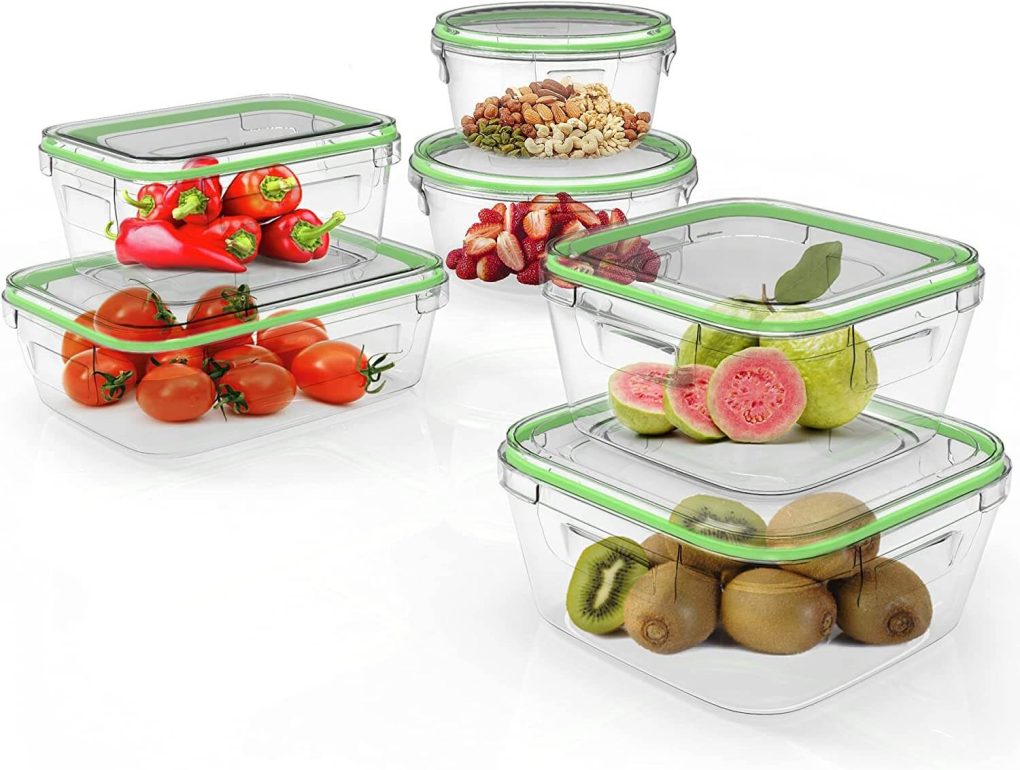
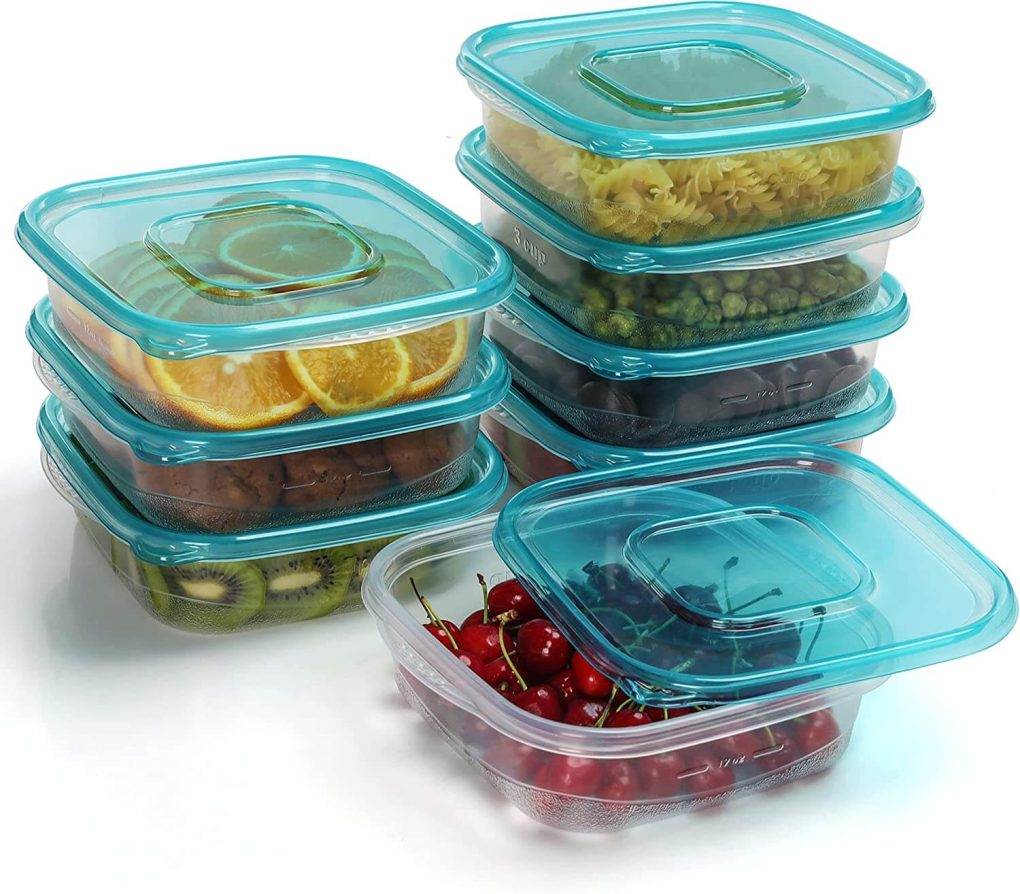
When choosing between glass and plastic containers for food storage, there are several factors to consider.
Safety
Both glass and plastic containers can be safe for food storage, but it’s important to choose ones that are free from harmful chemicals and toxins. Look for containers that are labeled as BPA-free and made from food-grade materials.
Durability
Glass containers are generally more durable than plastic containers and can last for many years with proper care. However, they are more prone to breaking if dropped or mishandled. Plastic containers may not last as long as glass containers, but they are more resistant to breaking and cracking.
Convenience
Plastic containers are typically more lightweight and easier to transport than glass containers, making them a good option for packing lunches or taking food on the go. Glass containers, on the other hand, may be heavier and more cumbersome to transport.
Versatility
Glass containers can be used in the oven, microwave, and freezer without any issues, while plastic containers may have limitations in terms of their heat resistance. However, plastic containers are generally more flexible and can be easier to store in tight spaces.
Environmental impact
Glass containers are generally more eco-friendly than plastic containers because they are more easily recyclable and don’t release harmful chemicals into the environment. However, plastic containers can be recycled as well, and some companies now offer reusable plastic containers that are made from recycled materials.
Cost
Glass containers are typically more expensive than plastic containers, but they may be a better long-term investment due to their durability and reusability. Plastic containers may be more affordable in the short term, but they may need to be replaced more frequently.
It’s important to note that there are many different types of glass and plastic containers available, and the specific features and benefits may vary depending on the brand and model. When choosing between glass and plastic containers, it’s important to consider your individual needs and preferences to find the best option for you.
FAQ
It is generally safe to store food in plastic containers labeled as food-safe and designed for that purpose. However, it is important to follow manufacturer instructions and avoid heating food in them unless they are microwave-safe.
Glass containers can be used in the microwave, but it’s important to check that they are labeled as microwave-safe and not subject them to sudden temperature changes.
To clean glass and plastic food storage containers, it’s best to follow manufacturer instructions, but generally, hand washing with soap and water is sufficient. Avoid using abrasive cleaners or scrubbers that could scratch the surface of the container.
Glass containers are generally more durable than plastic containers and are less likely to scratch or absorb odors and flavors.
Plastic containers are generally more convenient than glass containers because they are lightweight, shatterproof, and often come with airtight lids. They are also more affordable and come in a variety of sizes and shapes.
Glass containers are better for long-term food storage because they do not leach harmful chemicals into the food over time and are less likely to absorb odors and flavors. They are also easier to sanitize and can be used for both cold and hot food storage.
Conclusion
In conclusion, both glass and plastic food storage containers have their pros and cons, and the choice ultimately comes down to what works best for you. So, whether you prefer glass or plastic containers, make sure to choose ones that are high-quality and durable to ensure that they last for a long time.


